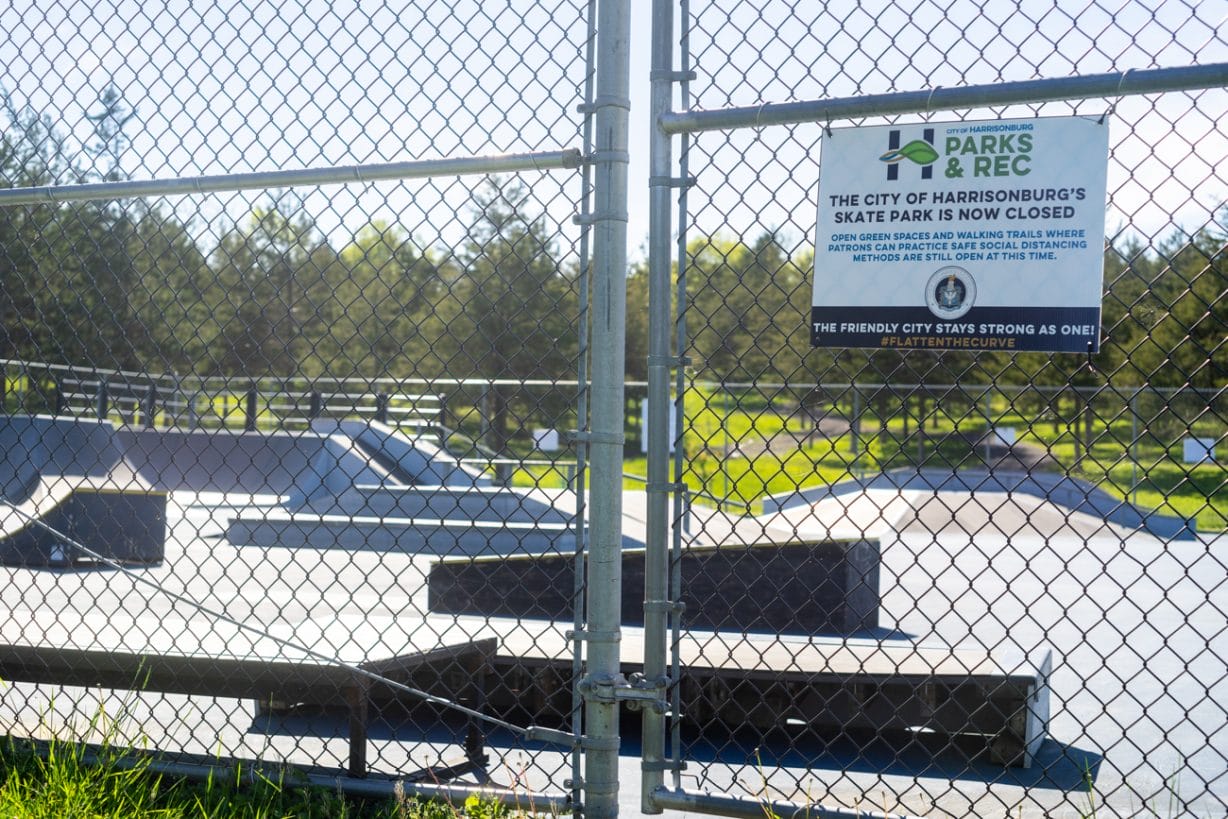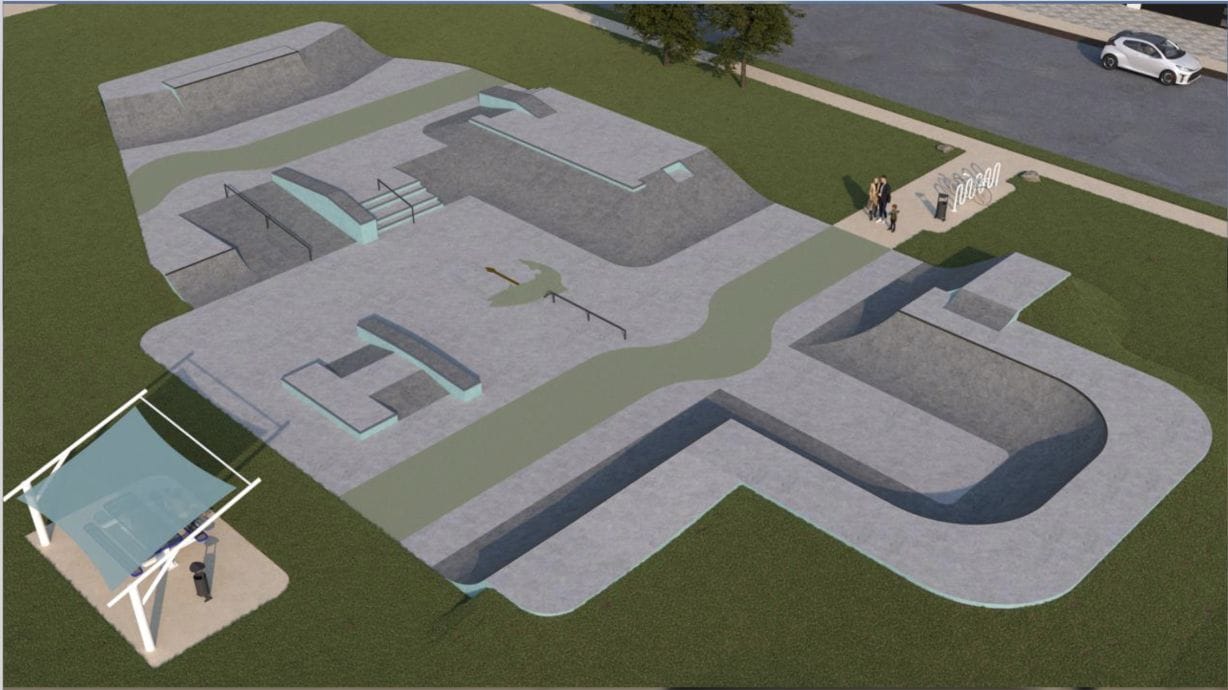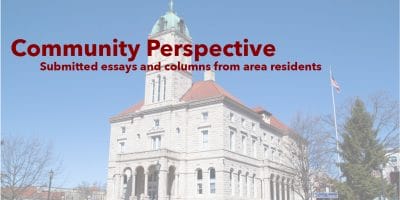
By Michael Russo, contributor
Before deciding the next step in rebuilding the Westover Skate Park, the city council on Tuesday decided to explore whether it’s best to find a new contractor.
But the city faces both time and financial restraints. Because the council approved the project as one that will be funded by federal American Rescue Plan Act (ARPA) funds, there are hard deadlines for when a deal must be in place and when the money must be spent. And finding a different contractor than American Ramp Co., which the city initially engaged, could cost a chunk of the $475,000 the council allotted for the project.
The council members, who unanimously approved exploring the alternative, said it might be worth the cost to make sure the skating community were satisfied with the materials used and safety of the new park.
Local skaters had previously criticized the city’s contract to work with American Ramp and use metal materials in its construction in favor of engaging with another contractor — and using concrete instead of steel for the project. If the council decides to terminate its contract with American Ramp, it would cost the city about $75,000, which would reduce the amount the city could pay a different contractor to develop the skate park. That figure includes $15,000 that has already been spent and the $60,000 fee to break the contract with American Ramp.
Brian Mancini, director of Harrisonburg Parks and Recreation, said his office negotiated with American Ramp to scrap initial designs that featured metal structures and obstacles and seek community input in alternative plans. Additionally, Mancini provided mock-ups of what American Ramp could accomplish with the full $475,000 renovation budget and shared testimonials from other municipalities that worked with the company on similar projects, which the city gathered through its assessment of American Ramp.
ARPA funds come with time constraints that require the money to be obligated by the end of 2024, meaning there’s a signed contract in place for use of the funds. The money must be completely spent by the end of 2026.

Even though seeking out other options would prolong the park’s development, Mayor Deanna Reed and council member Monica Robinson said it would be better to lose $60,000 — the fee to American Ramp if the contract is terminated — and come to a more agreeable plan than experience additional friction within the community and potentially run out of time to use the ARPA funds designated for the park.
Likewise, council member Chris Jones said even though other municipalities may be pleased with American Ramp’s work, the success of the project ultimately depends on the satisfaction of the skating community that would use the park.
“If they would rather have something less and smaller that was of better quality, I have to admit, I’m the same way,” Jones said.
In addition to the Westover Skate Park, Mancini said other Parks and Rec projects funded through ARPA are in various stages of development. The city’s six ARPA-funded projects in the Parks and Recreation department total $7.64 million — almost one-third of the city’s allotted funds.
- New stadium lights at the Smithland Athletic Complex are set to increase how much the facility can be used, especially in darker fall and winter nights. New restrooms will also be added at the complex, and other parks will take on the same design.
- The Thomas Harrison Soccer Field also has new lights being staged around the pitch, with upgraded fencing to match other Parks and Rec facilities to come soon.
- The Ralph Sampson Park Splashpark and Kids’ Castle at Purcell Park are both in early stages of development in the procurement process. Parks and Rec will seek community input in the design of both facilities.
Funding to support the community
Luke Morgan, the city’s grants and programs analyst, highlighted four ARPA-created funds: one supporting housing, one to help with child care, one aimed at bolstering small businesses and a fund to address mental health in Harrisonburg.
The largest of these funds is dedicated to creating more affordable housing in the city with new construction or renovating existing properties, all with longevity in mind, Morgan said. The $2 million won’t provide financial assistance for rent or down payments.
Because of time constraints of ARPA funds, Morgan listed site readiness for new construction as a top priority in the project’s criteria. An application process for interested developers will be open in September with awards granted by the end of the year, Morgan said.
The $496,000 child care fund is designed to maximize the number of children facilities can accommodate, as well as assisting in-home child care providers in the process of getting registered and/or licensed. However, the fund can’t support ongoing salaries in perpetuity. Morgan said this approach will emphasize establishing a foundation for child care providers that will bring about long-term success beyond the ARPA funds.
Reed said the council’s initial idea to build a city-run child care center wasn’t as beneficial as she hopes the fund will be. She said it will set people on a path to be entrepreneurs and continue to manage or start their own child care businesses.
Small businesses hurt by the COVID-19 pandemic that haven’t already received Harrisonburg Business Recovery Grants or money through a different bill that Congress passed — the CARES Act — are eligible to apply for grants between $4,000 and $10,000. The city dedicated a total of $200,000 to this fund, and the application is live on the city’s website through Aug. 31.
One of the priorities of the $400,000 mental health fund is to destigmatize mental illness through increased awareness of services in the community. The city awarded grants to six organizations, including the Boys & Girls Club of Harrisonburg and Rockingham, the Collins Center and Gemeinschaft Home.
Vice Mayor Laura Dent said she had initially wanted less spending on the recreation projects and more emphasis on mental health services but was pleased with the overall variety of sectors impacted by ARPA funds.
Other highlights:
- The council wrote off unpaid, delinquent real estate taxes from 2002 and personal property taxes from 2017, respectively, and approved advertising measures to encourage taxpayers to settle delinquent real estate taxes from 2020 and 2021.
- The Aug. 8 council meeting will begin at 5:30 p.m. to address the agenda’s regular items. Starting at 7 p.m., the council will hold public hearings on and review planning and zoning issues that have come through the city’s planning commission.
Thanks for reading The Citizen, which won the Virginia Press Association’s 2022 News Sweepstakes award as the top online news site in Virginia. We’re independent. We’re local. We pay our contributors, and the money you give goes directly to the reporting. No overhead. No printing costs. Just facts, stories and context. We value your support.













